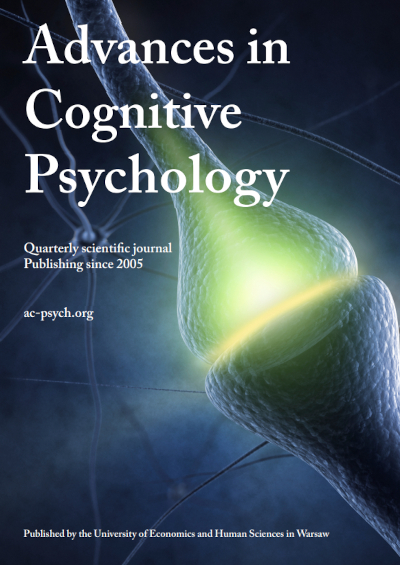About this journal
Advances in Cognitive Psychology (ACP) is an open access, quarterly peer-reviewed scientific journal dedicated to research on cognitive models of various aspects of psychology.
Since the 1970s, researchers have tried to understand the way mental and cognitive systems influence various behaviors and attitudes, how such systems develop, what are their functional, evolutionary origins, and what are their physical and psychological processes. Our journal attempts to disseminate original empirical (2.5k word brief reports; 5k single study; 10K word multistudy) and theoretical/review/meta-analyses articles (10K word), as well as replications (2.5k word brief reports), reports of null findings (2.5k word brief reports), and literature reviews (10K word) about research that places the mind and mental processes as central features of psychological systems and research as opposed to purely environmentally deterministic or behaviorist models.
To do so, our journal is broken up into three parts, run by Section Editors and reviewed by specialized academics from around the world: Attitudes, Beliefs, and Behavior (Andrew G. Thomas); Cognition, Intelligence, and Thinking (Charles-Étienne Benoit); and Personality and Individual Differences (Radosław Rogoza). Please see the Author Guidelines section for details and submission instructions.
ACP also promotes and encourages open science, pre-registration of study and is a peer community in registered reports (PCI RR) - friendly journal. We are also indexed in a range of major databases, including PubMed, Scopus, JCR, and PsycINFO (eISSN: 1895-1171).
In 2022-2024, Advances in Cognitive Psychology receives financing from the Ministry of Science and Higher Education, Poland within the program Rozwój Czasopism Naukowych (application/contract no. RCN/SN/0494/2021/1; total value of the project: 91,908.00 PLN; funds granted directly by the Ministry: 45,954.00 PLN; date of signing the contract: 23.12.2022). The aim of the project is to improve the scientific and editorial standards of scientific journals as well as to increase their international impact and reach. The funds received as part of the program are used by Advances in Cognitive Psychology to (a) finance access to an editorial system software suite, including an anti-plagiarism tool, and to register DOI numbers for the published articles, (b) implement current best practices into the editorial workflow on the level of the editorial system suite, including the addition of ORCID numbers, (c) finance access to typesetting software, and (d) promote the journal among potential authors and readers online.
W latach 2022-2024 czasopismo naukowe Advances in Cognitive Psychology otrzymuje dofinansowanie w ramach programu Rozwój Czasopism Naukowych Ministerstwa Nauki i Szkolnictwa Wyższego (nr rejestracyjny wniosku/umowy: RCN/SN/0494/2021/1; wartość dofinansowania przyznanego przez Ministerstwo: 45,954.00 PLN; całkowita wartość zadania: 91,908.00 PLN; data podpisania umowy o dofinansowanie zadania: 23.12.2022). Projekt ma na celu podniesienie standardów naukowych i wydawniczych czasopism naukowych oraz zwiększenie ich międzynarodowego wpływu i zasięgu. Dofinansowanie przyznane Advances in Cognitive Psychology przez Ministerstwo są przeznaczone na: (a) opłatę licencji/dostępu do pakietu oprogramowania redakcyjnego, w tym systemu antyplagiatowego, oraz rejestracji numerów DOI dla publikowanych artykułów; (b) wdrożenie współczesnych najlepszych praktyk wydawniczych na poziomie system oprogramowania redakcyjnego, w tym integracji numerów DOI, (c) opłatę licencji/dostępu do programu do składu artykułów oraz (d) promocję czasopisma online wśród potencjalnych autorów i czytelników.

Issue 4 On line: 16 November 2025
Faces of Forgiveness: The Impact of Emotional Facial Expressions on the Willingness to Forgive
Sebastian Binyamin Skalski-Bednarz, Loren L. Toussaint, Patrycja Uram, Robert Balas

Sebastian B. Skalski-Bednarz, Katholische Universität Eichstätt-Ingolstadt, Faculty of Philosophy and Education, Luitpoldstraße 32, 85071 Eichstätt, Germany.
Email: sebastian.skalski@ku.de
This study explored how facial emotional expressions influence the willingness to forgive, focusing on the role of sadness and attentional orientation under neutral and stress-induced conditions. An online survey was administered through Qualtrics to a U.S. sample (N = 246), employing scales to measure trait forgiveness, compassion, and willingness to forgive. Visual stimuli from the OASIS database were used to induce stress and present facial expressions, with a prior validation study (N = 215) selecting appropriate images displaying happy, neutral, and sad faces. The findings show that sad expressions significantly increased the willingness to forgive compared to neutral or happy expressions, supporting the empathy-altruism hypothesis. Trait forgiveness and compassion enhanced the willingness to forgive, highlighting the interplay between dispositional traits and situational factors. Attentional orientation towards emotional expressions varied with trait forgiveness under stress: those higher in trait forgiveness preferred happy faces. In contrast, those lower in trait forgiveness were more attentive to sad faces. These results suggest that recognizing emotional expressions has the potential to facilitate forgiveness, offering practical implications for conflict resolution strategies. Future research should address limitations such as cultural representation and the complexity of real-life emotional interactions using diverse samples and advanced techniques like eye-tracking.
Keywords: facial emotional expressions, attentional orientation, forgiveness, compassionExploring Grief: An In-Depth Analysis of Bereavement Counseling in The Initial Phases of Loss
Angela Maria Mackey, Krzysztof Kiełkiewicz

Krzysztof Kiełkiewicz, School of Human Sciences, VIZJA University, Okopowa 59, 01-043, Warsaw, Poland.
Email: kkielkiewicz@gmail.com
The objective of this study was to gain insight into the experiences of qualified therapists in counseling early-stage bereaved clients and to identify implications for clinical practice. Semi-structured qualitative interviews were conducted with psychotherapists experienced in bereavement counseling, using a phenomenological, thematic analysis approach. The primary objectives of early bereavement counseling are to normalize the client's experience, provide psychoeducation, assess emotional and functional risks, offer support through active listening, and create a safe space for emotional release. Empathy and attentive listening were found to be essential qualities for therapists. There were no risks associated with early bereavement counseling, which is in contrast to most current practice recommendations. The counseling session might be brief, and clients who need more help are urged to seek it out elsewhere. Comprehensive clinical work is not recommended at this early stage.
Keywords: early bereavement, counseling, psychotherapy, well-being, qualitative methodologyIs 'Better' Always Better? Cognitive Performance in Children with Misophonia vs. Controls
Marta Siepsiak, Anna Turek, Magdalena Michałowska, Małgorzata Gambin

Marta Siepsiak, Faculty of Psychology, SWPS University, Chodakowska 19/31, Warsaw, 03-815-, Poland.
Email: msiepsiak@swps.edu.pl
Misophonia is a disorder characterized by adverse reactions to specific repetitive sounds, such as oral and nasal noises made by humans (e.g., chewing, sniffing) and environmental sounds (e.g., animal licking, tapping). These reactions can manifest early in life and involve the nervous, autonomic, and perceptual systems. Cognitive functions appear to play a key role in how these stimuli are processed in individuals with misophonia. Although it is associated with various psychiatric disorders, it also presents distinct clinical features that suggest alterations in cognitive processing, particularly selective attention and inhibitory control. However, research on cognitive processes in situations without exposure to trigger sounds in individuals with misophonia, especially children, remains limited. Given that misophonia typically begins in childhood or adolescence, understanding its early cognitive profile is crucial. This study investigated cold cognitive processes, including inhibitory control, selective and divided attention, and verbal and abstract reasoning using performance-based tests in children with misophonia (n = 32) and controls without sound-related issues (n = 30), aged 7–17. Children with misophonia outperformed controls in divided attention (p < .001) and inhibitory control (p < .001), with no differences in other cognitive domains. Logistic regression showed that better inhibitory control increased the likelihood of misophonia, while linear regression indicated that misophonia status and selective attention predicted better inhibitory control. These results suggest that misophonia in children is related to enhanced inhibitory control rather than deficits in cognitive functioning. A better understanding of these cognitive processes could be an important step toward understanding the nature of misophonia, especially in pediatric populations.
Keywords: misophonia, cognitive functions, inhibitory control, children, pediatric



